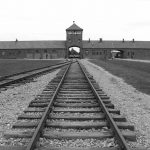Nazi Germany: From Nazi Party Founding to Holocaust
With the rise of the Nazi Party in 1933, Germany entered one of its darkest periods. Germany committed the Holocaust during Nazi rule, a genocide that killed Jews and other people considered undesirable by Nazi ideology. This time period shows the dangers of unbridled power and hatred.
Imagine a world where unbridled extremism and bigotry have left a terrible legacy. Nazi Germany changed geopolitics and left an everlasting impact on humanity through the Holocaust. This article explores the Third Reich’s dark legacy, Nazi rule’s grim realities, and ongoing research into this turbulent era. By tracking Nazi ideology from its birth to its demise, we seek to present a complete picture of Germany’s history and illuminate the lessons learnt from one of history’s most terrible chapters. Join us as we study this period and learn how remembering the past can prevent such horrors from happening again.
The Third Reich’s Dark Legacy in Modern Germany
Modern Germany’s common memory and sociopolitical landscape are still shaped by the Third Reich. A strong culture of remembrance and education has emerged from efforts to confront and understand Nazi Germany’s terrible legacy to prevent its horrors from reoccurring. German society has had to reconcile and reflect after Hitler’s regime’s excessive nationalism, antisemitism, and concentration camp mistreatment of political prisoners. Monuments and memorials across and the Nuremberg trials of Nazi officials remind us of the atrocities. This continual journey toward learning and atonement emphasizes the need of remembering the past to protect the future from hate ideologies.
Unearthing Nazi Holocaust Horrors
Nazi Germany perpetrated the Holocaust under Adolf Hitler and the National Socialist party. Six million Jews and millions of others deemed undesirable by the Nazis were persecuted and killed. Nazi leaders’ homicidal objective was carried out brutally through anti-Jewish laws, ghettos, and death camps like Auschwitz. Holocaust destroyed the Jewish community and shook the world’s conscience, showing the dangers of unbridled hatred and discrimination. In addition to killing people, the Holocaust helped the Allies defeat Hitler’s Third Reich and shaped the post-war world order.
Updates on Nazi Party Research
Recently discovered facts illuminate Germany’s terrible past, changing Nazi Party study. Scholars and historians are uncovering detailed information about the National Socialist movement’s operations and ideas. Digitization of archives and the publishing of previously available papers have helped explain Adolf Hitler’s rule. These research advances are essential for understanding the Third Reich’s impact on German society and the world.
Nuremberg trials and their long-term consequences on international law and Nazi atrocity recall are another major advancement. Recent studies examine how the trials’ legal precedents have shaped modern crimes against humanity prosecutions. Scholars continue to dispute the Treaty of Versailles and its significance in Nazi emergence. Researchers are improving their understanding of the conditions that led to Hitler becoming Chancellor and World War II by critically evaluating these aspects. These findings emphasize the importance of historical knowledge in preventing such ideas from resurfacing in political parties.
Understanding Germany’s History: Nazi Rise and Fall
Nazi Germany shaped 20th-century politics and society worldwide. The Nazis’ rise and fall under Adolf Hitler is a key chapter in German history. After World War I, Germany was in economic despair and national humiliation, which the National Socialist Party used to attract support. After the Reichstag Fire, which suspended civil freedoms and banned all political parties except the Nazis, Hitler’s 1933 election as German Chancellor was crucial. This consolidation of power began a dark era for German Jews, German society, and the world. The Nazis’ totalitarian regime carried out aggressive expansionist objectives that caused World War II. From the systematic persecution of Jews and political opponents to the tragic worldwide battle that followed, this period highlights the importance of knowing Germany’s history in the context of the Nazis’ rise and demise.
From Reich to Ruins: Nazi Ideology Evolution
The complicated development of Nazi ideology from its early phases after the Treaty of Versailles to its tragic implementation under the Third Reich changed German society and had global repercussions. After World War I, Adolf Hitler and the Nazi Party used the economic instability and national humiliation to spread their goal of a racially pure and dominant Germany. Hitler was granted dictatorial powers by the 1933 Enabling Act, which led to the systematic persecution of Jews, political dissidents, and anyone the dictatorship considered undesirable. This age highlighted the dangers of radical ideologies and their ease of infiltration into susceptible societies.
From Anti-Jewish laws to concentration camps, Hermann Göring and Heinrich Himmler were crucial to Nazi policy. The Munich Pact and Nazi expansionism caused World War II and showed the international community’s early underestimate of the National Socialist menace. The fall of the Third Reich in 1945 destroyed Germany physically and morally, demonstrating the dangers of unfettered power and the need for international vigilance against radical ideologies. The Nazi history reminds us of how far humanity may go when hatred and bigotry triumph.
The Enabling Act: Hitler’s Dictatorship’s Legal Basis
The Enabling Act of March 1933 legalized Adolf Hitler’s power as Chancellor, a turning point in Nazi Germany’s history. The Law to Remedy the Distress of the People and the Reich gave Hitler and his cabinet the power to pass laws without the Reichstag’s approval, essentially bypassing Germany’s legislative system. The Act expedited the execution of laws that established the Nazi government. This included press control, political repression, and anti-Jewish policies. The Reichstag Fire Decree, which had suspended many civil liberties, helped pass the Enabling Act, demonstrating the Nazi Party’s capacity to utilize legal frameworks to legitimize their dominance over Germany.
Additionally, the Enabling Act had far-reaching effects on German society and set the stage for the Third Reich’s methodical persecution. Hitler was able to centralize authority and implement aggressive policies that led to the annexation of lands, the militarization of German society, and the creation of a state-driven economy to prepare for war by removing the Weimar Republic’s checks and balances. The Act undermined democracy in Germany and showed how legal procedures may support authoritarianism. It highlights the fragility of democratic institutions and the need to protect them from radical beliefs.
FAQs
How did the Enabling Act help establish Nazism?
The Enabling Act of March 1933 was crucial to Hitler’s Nazi leadership. The Law to Remedy the Distress of the People and the Reich allowed Hitler and his cabinet to adopt laws without the Reichstag’s approval, bypassing Germany’s legislative system. This legislation paved the way for the totalitarian rule by quickly enforcing regulations that crushed political opposition, controlled the press, and persecuted Jews. The Enabling Act eroded German democracy and showed how legal procedures may support authoritarianism.
How did the Treaty of Versailles boost Nazism?
Germany was punished by the 1919 Treaty of Versailles, which ended World War I with territory losses, military restraints, and severe reparations. Extremist ideologies flourished in Germany due to economic hardship and national shame. Adolf Hitler’s Nazi Party exploited these sentiments by vowing to restore Germany’s grandeur and reverse the Treaty. Dissatisfaction with the Treaty of Versailles helped the Nazi Party rise to power, as many Germans saw Hitler and the Nazis as a way to recover national dignity and stability.
What roles did Göring and Himmler play in Nazism?
Hermann Göring and Heinrich Himmler were crucial to Nazi policy execution. Hitler’s early backer Hermann Göring was Luftwaffe chief and Gestapo founder. He helped create detention camps and anti-Jewish laws. As commander of the SS (Schutzstaffel) and the Holocaust’s main architect, Heinrich Himmler killed six million Jews and millions of other Nazi disfavored people. Göring and Himmler were key to enforcing Nazi murderous programs and dictatorial rule over Germany.
How did the Reichstag Fire affect Hitler’s rise?
The February 27, 1933 Reichstag Fire helped Adolf Hitler solidify his power as Chancellor of Germany. Nazis blamed communists for the Reichstag fire, which destroyed the German parliament. Hitler convinced Hindenburg to adopt the Reichstag Fire Decree, which suspended civil freedoms and authorized the arrest of political opponents, notably communists, immediately afterward. The Nazi Party gained power and influence, which led to the Enabling Act in March 1933, which strengthened Hitler’s rule over Germany.
How did Nazi policies affect German society and occupied countries during WWII?
Nazi policies devastated German society and the countries controlled by German soldiers during World War II. Nazi Germany repressed freedom, banned the press, and encouraged violent nationalism. The Holocaust killed six million Jews due to anti-Jewish laws. Roma, political dissidents, and other undesirables were targeted. Nazi programs of exploitation, forced labour, and mass murder in occupied countries caused immense suffering and death. German soldiers were mobilized and much of Europe was destroyed due to expansionist policies and conflict. Nazi policies killed millions and changed worldwide borders and communities.



